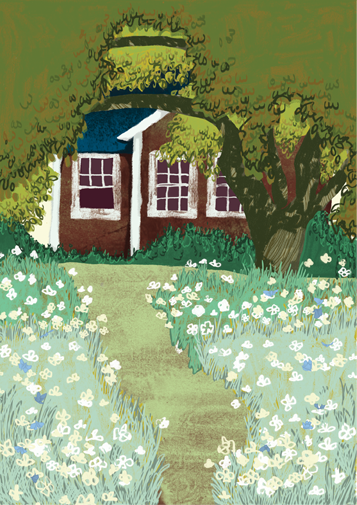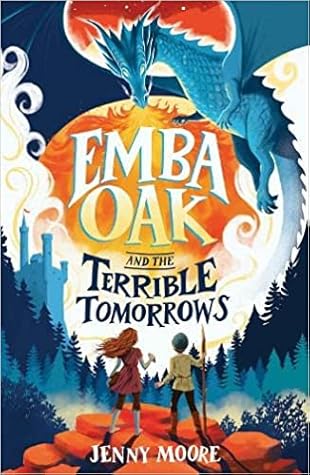 It is already the 12th of August – where is time going? Before the month flies past I dip into my seasonal reading again. Stephen Moss, in his book Wild Hares and Hummingbirds, describes August as “the height of summer: long, hot, sunny days…” That’s not quite matching our experience so far with temperatures below what they were in June. Still it’s much warmer than last year’s summer in Scotland. When I take Little Owl to meet her friends at the nearby splash park she is the first to strip off, amazed that her pals think it’s cold. However we could do with some really fine weather to ripen off the tomatoes, which are abundant but all green. In Moss’ garden in Mark, Somerset, berries are ripening everywhere and the first fruits of the harvest are celebrated by a harvest supper the locals call Harvest Home. This sounds to me as though it coincides with the traditional festival of Lammas, where the first wheat harvest would have been greeted with celebrations.
It is already the 12th of August – where is time going? Before the month flies past I dip into my seasonal reading again. Stephen Moss, in his book Wild Hares and Hummingbirds, describes August as “the height of summer: long, hot, sunny days…” That’s not quite matching our experience so far with temperatures below what they were in June. Still it’s much warmer than last year’s summer in Scotland. When I take Little Owl to meet her friends at the nearby splash park she is the first to strip off, amazed that her pals think it’s cold. However we could do with some really fine weather to ripen off the tomatoes, which are abundant but all green. In Moss’ garden in Mark, Somerset, berries are ripening everywhere and the first fruits of the harvest are celebrated by a harvest supper the locals call Harvest Home. This sounds to me as though it coincides with the traditional festival of Lammas, where the first wheat harvest would have been greeted with celebrations.
Steve Roud discusses Lammas in his book The English Year. He says that the word ‘Lammas’ comes from the Old English hlafmaesse, which means ‘loaf-mass’, often celebrated with loaves of bread. We’ll be hanging on for September for our harvest celebrations. As I read Roud’s chapter on August I’m reminded that, although it is interesting to look back at the customs of our ancestors there’s much that should stay firmly confined to the past. Wisely, Roud doesn’t go into extensive detail when he mentions old customs of bull-baiting and cock-fighting. Sparrow-mumbling is another term I would suggest you don’t look up. While there is much wrong with our world and society, thankfully there is now small tolerance for such abuse and cruelty.
On a lighter note Roud relays the amusing tale of the Congleton Bells, a custom that fell on the 12th August in Congleton, Cheshire. The church there is dedicated to St Peter ad Vincula (St Peter in Chains – read Acts 12 if you’re not sure) and so a local feast was held on his day in August. The town would be woken by the din of a noisy procession carrying “horse collars hung round with numerous bells of peculiar shape; these collars were placed on men’s shoulders and, walking through the streets of the town, the men shake the collars vigorously and thus cause the bells to emit a loud noise.” Apparently this was supposed to mimic the sound of St Peter’s chains. The bells and the rights to process with them was hereditary and passed into the hands of a family of chimney sweeps named Stubbs. Roud says, “They had taken to profaning the occasion by getting drunk and descending into burlesque. Finally, when two branches of the family were disputing ownership of the bells , and both had been locked in the town gaol for fighting, the town clerk took the opportunity to buy the bells, and from then on they belonged to the town’s corporation.” Those naughty chimney sweeps!






